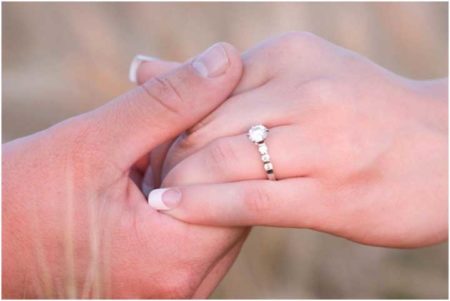Pawn shops have been around for thousands of years. They are not something that originated in the United States. In fact, pawn shops existed in many other parts of the world such as China, Europe, and the British Isles many years before Columbus found the Americas. There is a rich history behind pawn shops as we know them today. Arizona Jewelry and Loan is only a small player in this history but is proud to add to it. Experts at our store have been asked to evaluate and appraise items for people from all over the world. We gladly carry on the tradition of providing for our community both near and far.

Pawn Brokers in the United States
Of course, what was being done in Europe made its way across the ocean to the United States. Over the past 100 years, the pawnshop has become more and more common in the U.S. as the number of shops has increased significantly.
During the Depression, pawn shops were many times the only place a man could go to get cash. Banks were failing and could not help. Many people found themselves forced to give up cherished belongings in order to pay bills and keep food on the table for their family. Even today pawn shops are one of the only places that a person can go to turn their belongings into cash quickly when needed. They serve people of all class backgrounds as a place to buy and sell unique items. Pawn shops are no longer found only on back streets, in poor storefronts, in the worst part of town. They are found in every type of neighborhood, rich or poor, and the stores are clean and brightly lit.

Over the years each state, and even specific municipalities, have been able to create their own set of laws governing pawning. Depending on the jurisdiction, some pawnbrokers are required to provide a daily list of items taken in during the preceding 24 hours to the police in an effort to stop stolen merchandise from being sold to pawn brokers and their pawn shops. Most brokers are licensed in some way, once again depending on their location. The top rate of interest that can be charged may also be regulated as well as how long a loan can be written for.
The National Pawnbrokers Association was established in the United States in 1988. It provides a trusted source of information for pawn brokers and an industry voice to law makers and others to hear. Networking through the NPA can provide education for members as well as a place to ask questions of other pawnbrokers when a different situation arises.
This brings us up to today, but let’s dig a little further into the history of the pawn shop.
The Earliest Pawn Shops
The earliest known pawnbrokers were in 5th century China. The establishments were owned and operated by Buddhist monks. Wealthy laypeople sometimes chose to form partnerships with Buddhist monasteries so that they could open pawnshops while avoiding certain types of taxes that monasteries were exempt from paying. Records from a 1202 memorial in China show that a group of ten people formed an association with a monastery which then backed the establishment of a pawn shop.
Pawning occurred in both Greece and Rome as well. Much of the contemporary law dealing with pawn shops have been derived from the Roman laws on the subject. In Rome, certain items such as clothing and furniture could not be used as collateral but those restrictions have not been carried forward into today’s laws. The emperor Augustus was known to use the extra funds the empire gained from confiscation of property that had belonged to criminals to form a fund. This fund was used by the State to lend money without interest to people. A person would receive money in exchange for valuable items equal to double the amount of the money borrowed.

The Early Church and Pawning
Early laws of the church forbade the taking of interest from the poor. No Jew was to pay another for money but Jews were allowed to lend money to gentiles.
In Italy, a purely benevolent system was established by the authority of the reigning pope. It lent money only to the poor, without interest. The amount a person could receive was based on the value of the collateral they supplied. This system did not last long because there was no income to support its operation and management. Soon voluntary support ran out and the arrangement was closed down.
Throughout early Medieval Europe, various pawn systems were established as early as 1198 in Bavaria. They realized that some type of interest had to be charged in order to run the system. But in the end, the pawn brokers still failed to survive.
The Vatican realized that they were going to have to allow the collection of a small charge for the pawn loans to help cover expenses of running the system. At first, this only brought controversy but in the end, Pope Leo X declared that the pawn shop was a valuable institution and did not violate the laws of the Church. He threatened ex-communication of anyone who would presume to express doubts about allowing pawn shops to exist and to charge a small fee. Finally, The Council of Trent confirmed the Pope’s statements, and much of the controversy was laid to rest, at least for a while.
Many pawnshops were associated with the Church during medieval times. Two Franciscan brothers collected the necessary capital to open a pawn shop by preaching. Their pawn shop in Perugia was quite successful, with a substantial balance of profit at the end of the first year. Slowly, over time, more pawn shops were opened throughout Europe. Many were funded through preaching. The question of charging interest continued to be an issue. In Florence, once again, it took local theologians declaring that there was no sin involved in charging interest in order for a pawn shop to be opened there.
The British Isles from the 1300’s to 1800
In England, the pawnbroker was considered to offer valuable services, including service to the Crown. Even so, the brokers were not treated well. In 1338 Edward III pawned his jewels to the Lombards to raise money for a war with France. In 1415, Henry V did much the same as he prepared for war. It is believed that Queen Isabella of Spain put up her jewels as collateral to finance Christopher Columbus’ New World expedition.
Later, under the reign of James I, the Act Against Brokers was passed. It really was aimed at the bogus brokers that were frequently found in London. These brokers routinely received stolen goods in return for money. The Act tried to limit the sale of stolen goods to pawnbrokers by making the brokers liable for the items. The brokers were required to produce goods for their rightful owner even if the items were originally stolen by the person from whom the broker had purchased the items. If the broker refused they risked forfeiture of double the value of the goods. Either way, the broker lost money if he was dealing in stolen properties. How well this actually worked to stop pawnbrokers from taking in stolen goods is not known.

The original charter for the Bank of England gave it the power to establish a pawn shop. It appears to have been the intention of the Bank’s early directors to set up small pawns at a penny a pound interest per month to help ease the financial status of poor people. Once again, it is not known how many people took advantage of this and whether it really worked well but it does show that respectable institutions were involved in pawning of items.
During the 17th and 18th centuries, pawn brokers continued to be poorly thought of. It was not unusual for men to pawn items in order to buy alcoholic beverages and to have money to spend on other pleasures. Pawn brokering afforded an easy way of raising money but allowed for much dishonestly. It allowed pickpockets and thieves to readily sell their stolen goods. It also allowed a person intending to go bankrupt to buy goods on credit then use the items as collateral to get money from pawn brokers. The creditors would end up with neither goods nor money.
Licensing of Pawn Brokers and Early Regulation
It is believed that in 1785 the first licenses for pawn brokers were issued. By 1800 modern laws were being enacted to regulate pawning. Overall the laws worked well for about 75 years. There was a small fee for the license and the amount a broker could collect in interest was regulated.
Over time, however, the main act of 1800 caused problems. The Pawnbrokers National Association and the Pawnbrokers Defense Association worked diligently to revise the laws in favor of the brokers. In 1870 the House of Commons appointed a Select Committee on Pawnbrokers to investigate what changes were needed to make the laws less punitive to pawn brokers while still protecting the people who were pawning items for money.
The result of the Select Committee was the Pawnbrokers Act of 1872. It repealed, changed, and consolidated much of the previous legislation into a useable set of laws that still regulate pawning to this day. Quite a few rules were set forth in this Act in an effort to safeguard both the broker and the person pawning items.
Back to the United States
Arizona Jewelry and Loan is a proud American pawn shop. We continue the tradition of providing a respectable place to purchase jewelry, collector coins, antiques, and other high-end curiosities. If you prefer we can provide quick cash with a loan and hold your valued items until the loan is repaid. Don’t hesitate to come in and look around. You never know what you might find at a pawn shop.







2 Comments
Thank you for sharing the interesting history behind pawn shops! I had no idea that pawn shops have been around for thousands of years and were originally used as a way for people to secure loans during financial difficulties.
It’s amazing to think about how these institutions have evolved and are still widely used today. I also found it fascinating to learn about pawn shops’ role during times of war and how they were used to provide soldiers with much-needed funds.
It’s critical to understand the history and context of the things we interact with on a daily basis. Knowing the history of pawn shops gives us a better understanding of their significance in our communities and their impact on people’s lives throughout history.
Once again, thank you for sharing this interesting information, and I hope to see more posts like this in the future!
Thank you for leaving such a thoughtful comment on my blog post about the history of pawn shops! I am glad that you found the information both interesting and enlightening.
The history of pawn shops is rich and fascinating, and it’s amazing to think about how these institutions have been around for thousands of years, serving as a source of financial support for people in need. Understanding the history and context of things we encounter in our daily lives is important, and I am glad that my post has contributed to that understanding in some way.
I appreciate your support and your kind words, and I am always happy to see that my blog posts are engaging and informative for my readers. Thank you again for leaving a comment, and I hope to see you back on my blog soon!